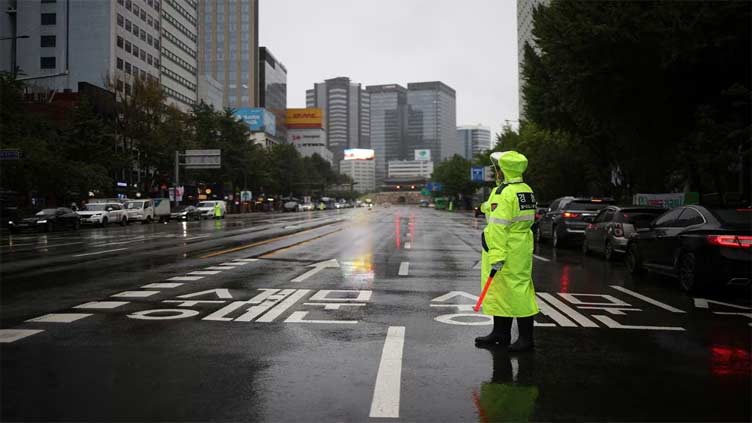South Korea to hold first nationwide defence drills in 6 years amid North threats

World
People in supermarkets, movie theatres and other public facilities will be guided to evacuate
SEOUL (Reuters) - South Korea is set to hold its first nationwide air defence drills in six years on Wednesday amid North Korea's growing nuclear and missile threats, with pedestrians required to take shelter and drivers asked to pull over in some areas.
The drills are a key element of the annual Ulchi civil defence exercises, held alongside the Ulchi Freedom Shield drills, which South Korean and U.S. troops began on Monday, to improve responses to a North Korean attack or other contingencies.
At 2 p.m., an air-raid siren will sound, calling for people to get off the streets for about 15 minutes before the alert is eased, according to the interior and safety ministry.
/cloudfront-us-east-2.images.arcpublishing.com/reuters/FYF44VVTYNILJK5SJ4B2RBOFF4.jpg)
Pedestrians must go directly to a designated shelter or nearby underground space, while drivers in about 200 areas nationwide must pull to the side of the road.
People in nearly 500 supermarkets, movie theatres and other public facilities will be guided to evacuate.
Medical institutions and public transportation will operate normally.
Some community centres near apartment complexes in Seoul announced the planned drills with loudspeakers on Tuesday, asking residents to follow instructions, which will be aired on the radio.
"The drills are meant to effectively respond to an actual air raid. Don't be surprised and please find a nearby shelter," the announcement said.
/cloudfront-us-east-2.images.arcpublishing.com/reuters/42BGHKVIANOEHJYLNFLKHUQTEY.jpg)
In some regions bordering North Korea, residents are expected to face additional scenarios, including chemical, biological and radiological training, wearing a gas mask and using emergency food rations, the ministry said.
The Ulchi civil defence exercises were launched in 1969 in the wake of a raid by North Korean commandos into the presidential compound in Seoul. There are about 17,000 shelters installed across the country of 52 million.
But the air defence training has not taken place since 2017.
/cloudfront-us-east-2.images.arcpublishing.com/reuters/DT7BC5C5TJO3BHEYRVHHT4U6RE.jpg)
In late May, Seoul came under fire after it issued a false air raid alarm and evacuation warning following North Korea's failed satellite launch, even though the capital was far off the rocket's trajectory, triggering panic among some residents.

